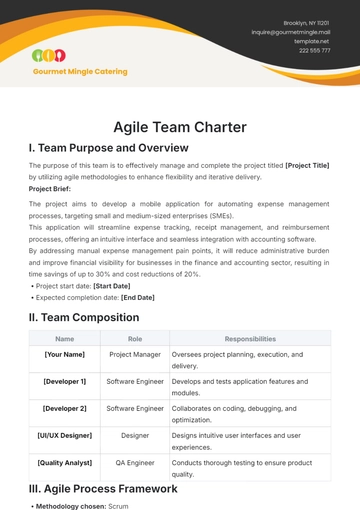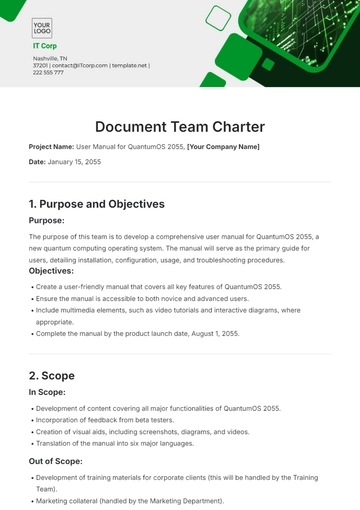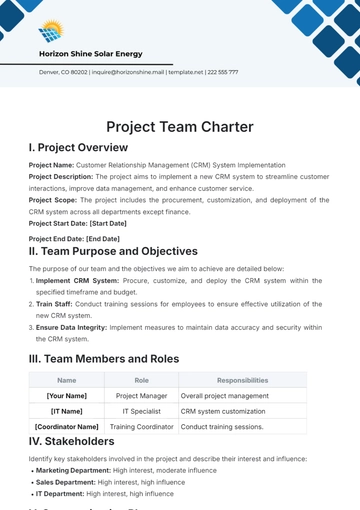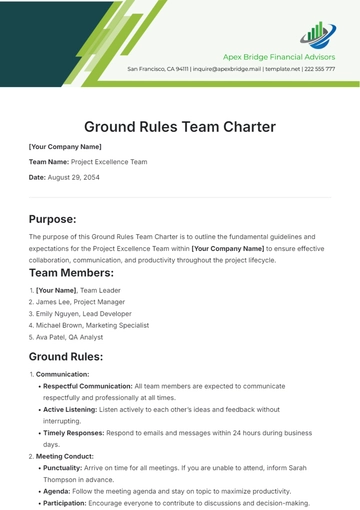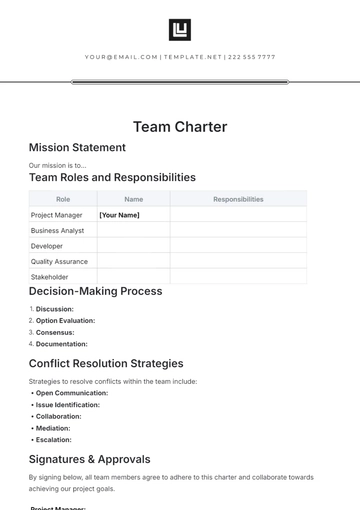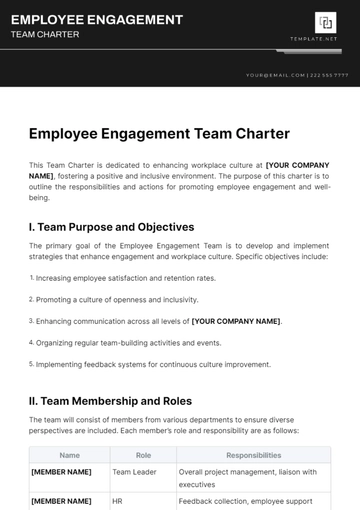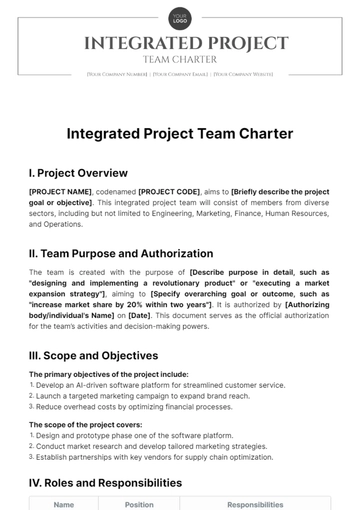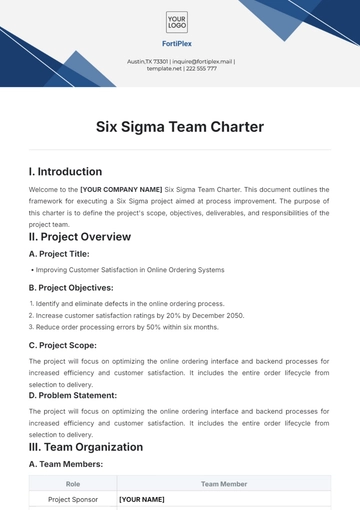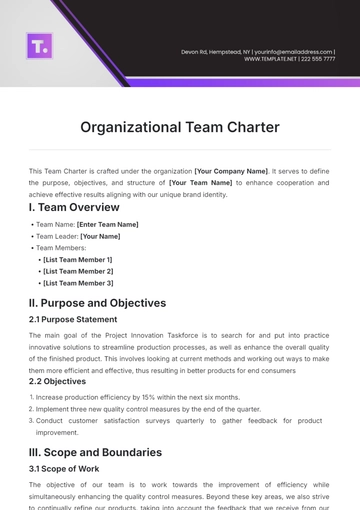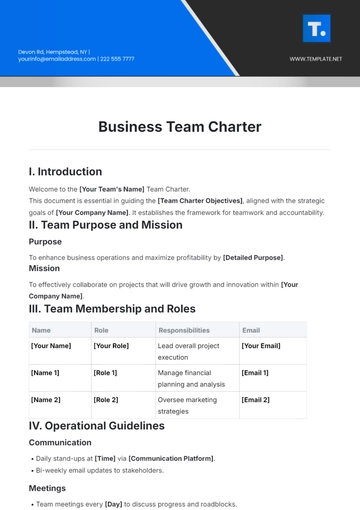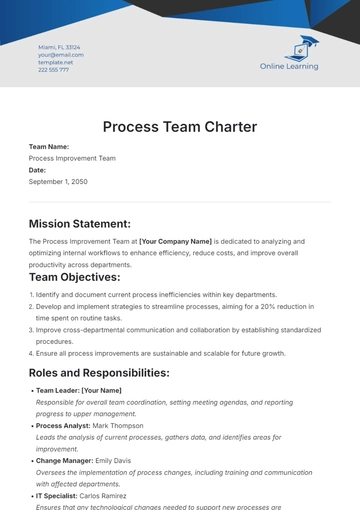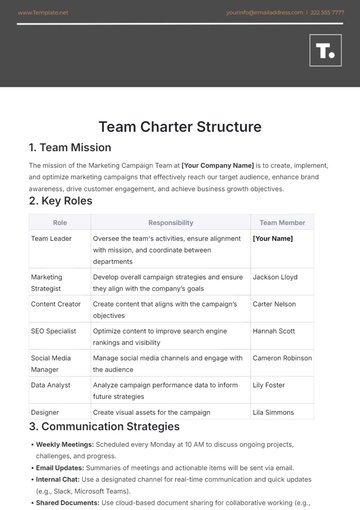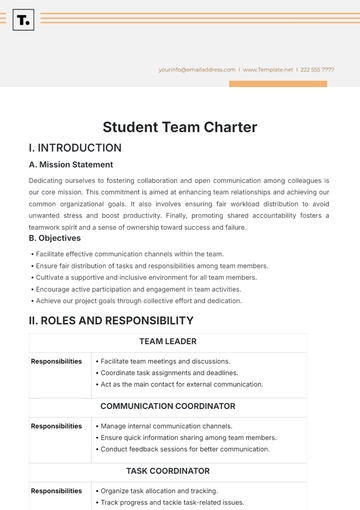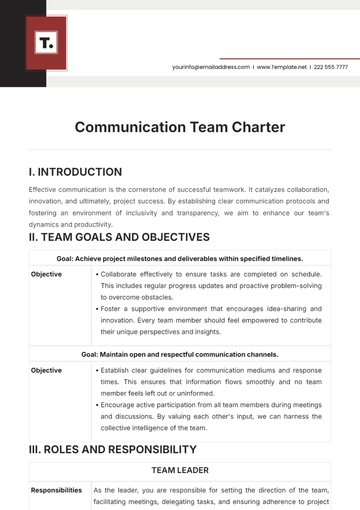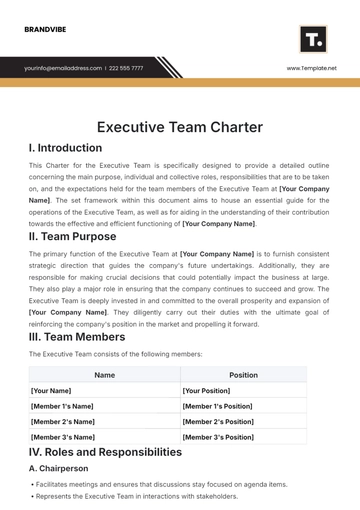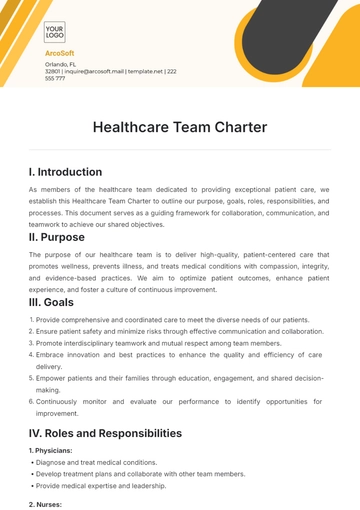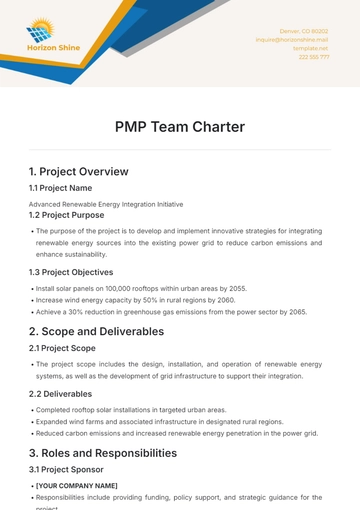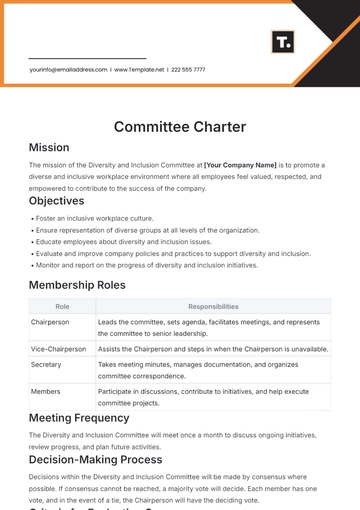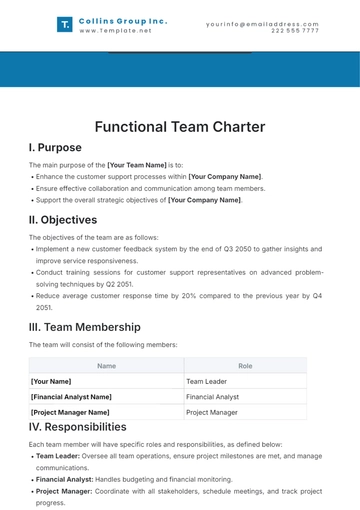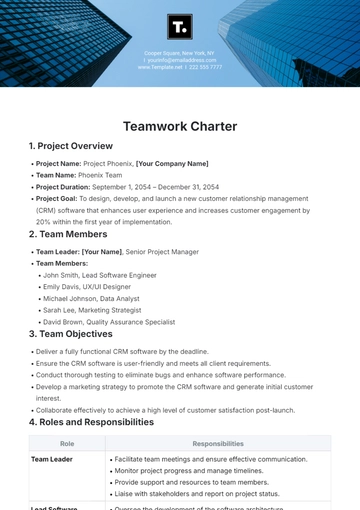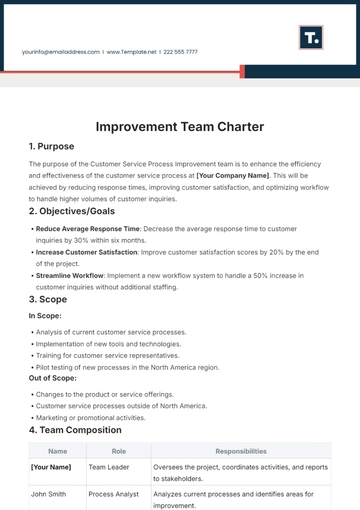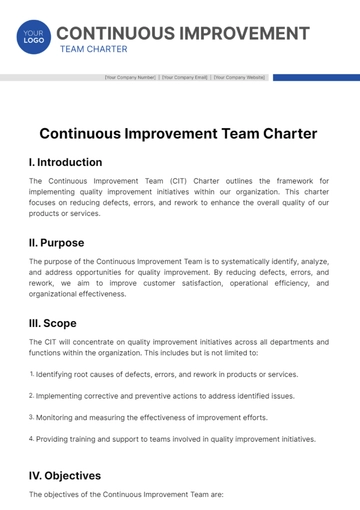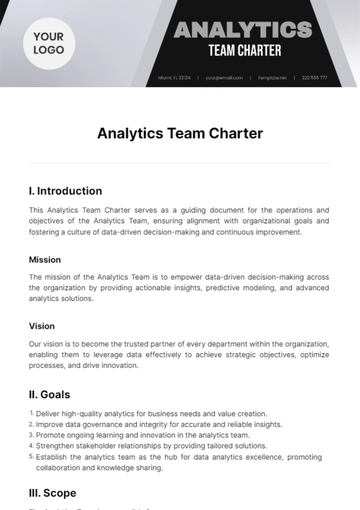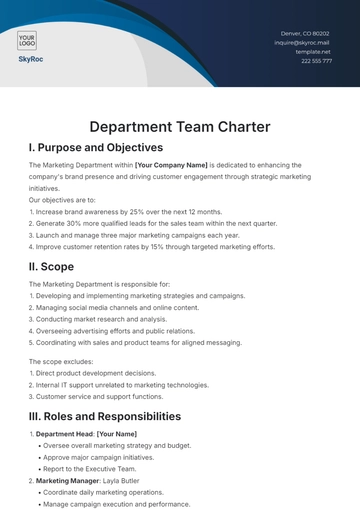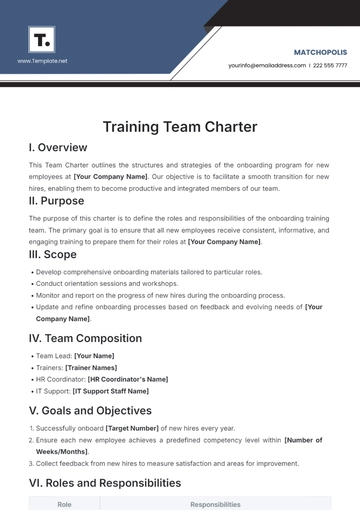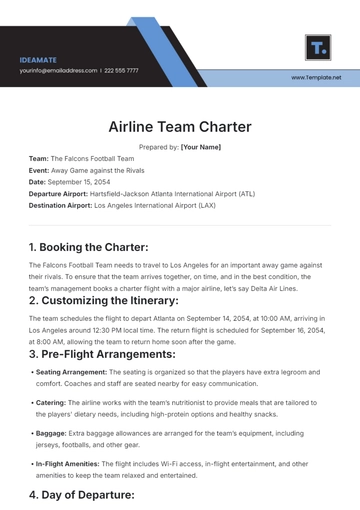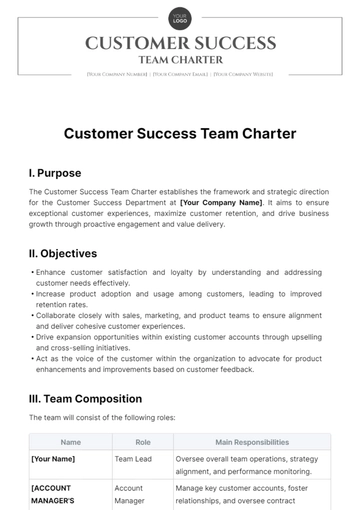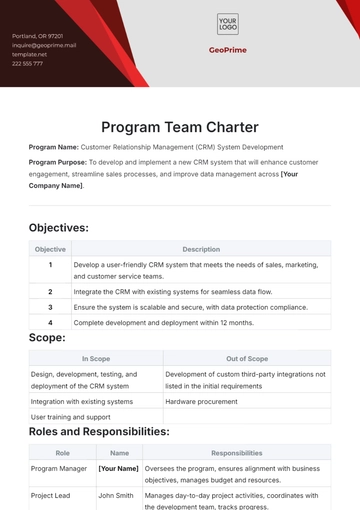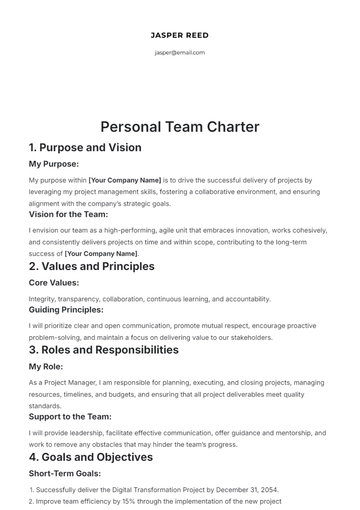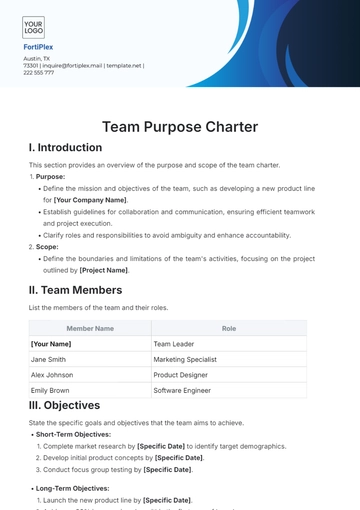Free Analytics Team Charter
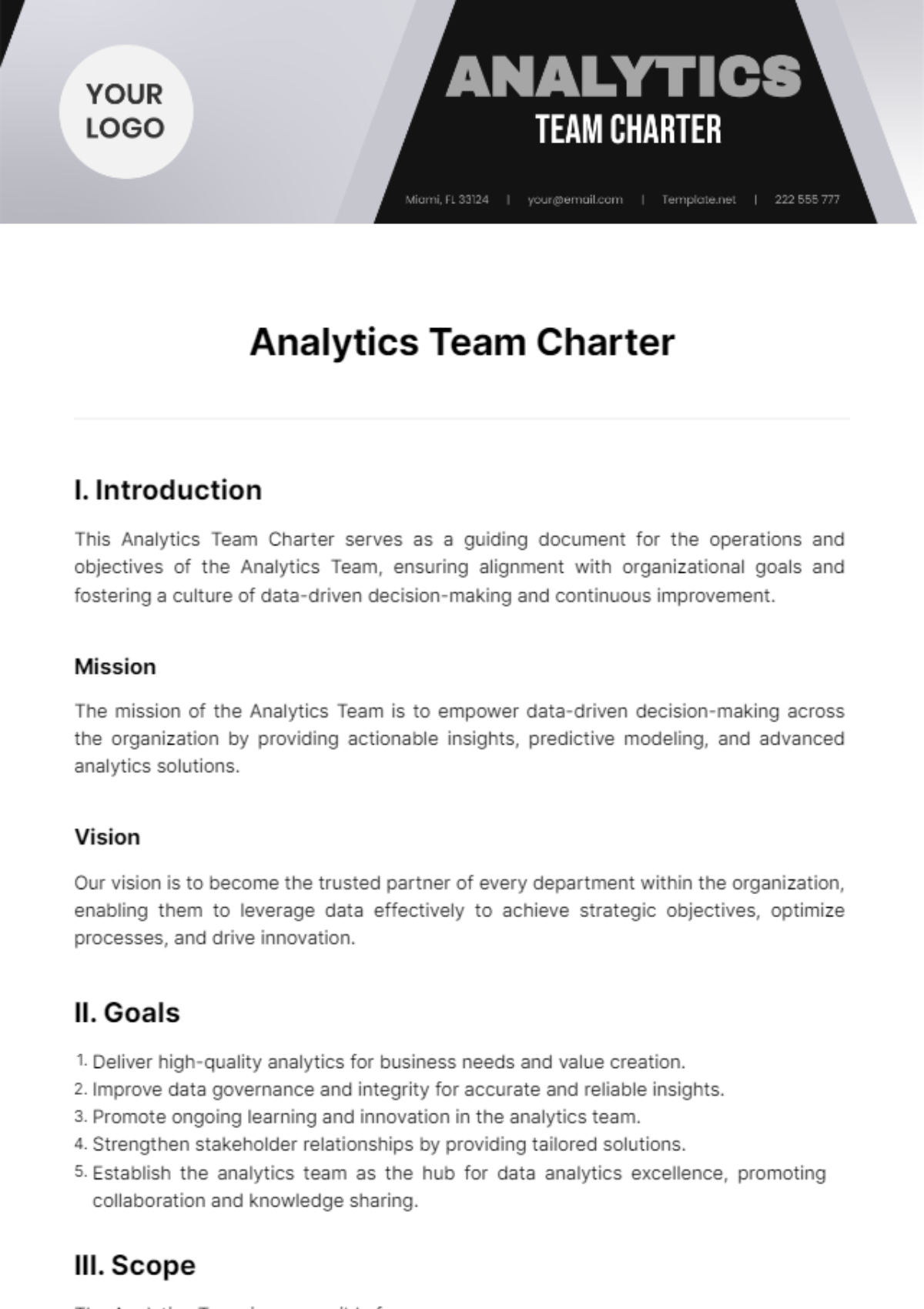
I. Introduction
This Analytics Team Charter serves as a guiding document for the operations and objectives of the Analytics Team, ensuring alignment with organizational goals and fostering a culture of data-driven decision-making and continuous improvement.
Mission
The mission of the Analytics Team is to empower data-driven decision-making across the organization by providing actionable insights, predictive modeling, and advanced analytics solutions.
Vision
Our vision is to become the trusted partner of every department within the organization, enabling them to leverage data effectively to achieve strategic objectives, optimize processes, and drive innovation.
II. Goals
Deliver high-quality analytics for business needs and value creation.
Improve data governance and integrity for accurate and reliable insights.
Promote ongoing learning and innovation in the analytics team.
Strengthen stakeholder relationships by providing tailored solutions.
Establish the analytics team as the hub for data analytics excellence, promoting collaboration and knowledge sharing.
III. Scope
The Analytics Team is responsible for:
Data collection, integration, and transformation.
Descriptive, diagnostic, predictive, and prescriptive analytics.
Development and maintenance of data models, algorithms, and dashboards.
Providing insights to support strategic decision-making and operational optimization.
IV. Operating Principles
Data-Driven Approach: Base all decisions and recommendations on empirical evidence and rigorous analysis.
Collaboration: Foster cross-functional collaboration and knowledge sharing to leverage diverse expertise and perspectives.
Transparency: Ensure transparency in methodologies, assumptions, and limitations of analytics solutions.
Agility: Adapt quickly to changing business needs and technological advancements to deliver timely and relevant insights.
Accountability: Take ownership of tasks and outcomes, holding ourselves and each other accountable for delivering results.
V. Objectives
Increase revenue X% with predictive analytics in targeted marketing.
Optimize supply chain processes to cut operational costs by X%.
Boost customer satisfaction by X points by tackling issues in their journey.
VI. Methodologies
Agile project management methodologies will be employed for iterative development and quick response to changing requirements.
Statistical analysis, machine learning, and data visualization techniques will be utilized to derive actionable insights from data.
VII. Key Performance Indicators (KPIs)
Customer Lifetime Value (CLV)
Churn Rate
Return on Investment (ROI) for analytics initiatives
Accuracy and reliability of predictive models
Time-to-Insight for analytics projects
VIII. Resources
Dedicated analytics team members with expertise in data science, statistics, and business intelligence.
Access to relevant data sources, analytics tools, and computing resources.
Continuous training and professional development opportunities to enhance skills and knowledge.
IX. Communication Protocols
Regular team meetings to discuss project status, challenges, and opportunities.
Stakeholder meetings to gather requirements, provide updates, and gather feedback.
Clear documentation of methodologies, findings, and recommendations for transparent communication.
X. Decision-Making Processes
Decisions will be made collaboratively, taking into account input from all relevant stakeholders and based on data-driven insights and analysis. In cases where consensus cannot be reached, the Analytics Team Lead will make the final decision, considering the best interests of the organization.

Name: [Your Name]
Analytics Team Leader
Date: [Approval Date]
- 100% Customizable, free editor
- Access 1 Million+ Templates, photo’s & graphics
- Download or share as a template
- Click and replace photos, graphics, text, backgrounds
- Resize, crop, AI write & more
- Access advanced editor
Introducing the Analytics Team Charter Template from Template.net, your solution for data-driven success. This dynamic resource is fully editable and customizable, empowering you to outline team roles, objectives, and methodologies with precision. Utilize our Ai Editor Tool to tailor the charter to your organization's specific analytics needs effortlessly. Drive informed decision-making and achieve your analytical goals with confidence.
